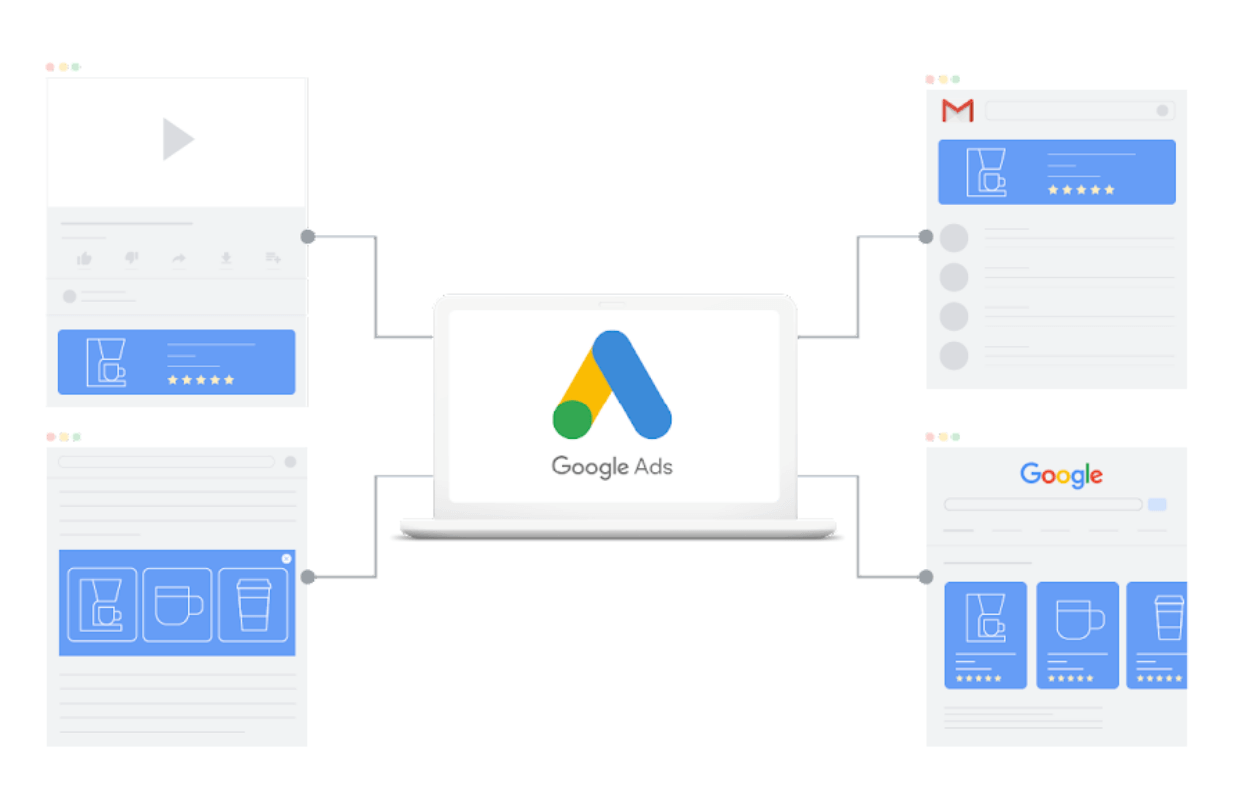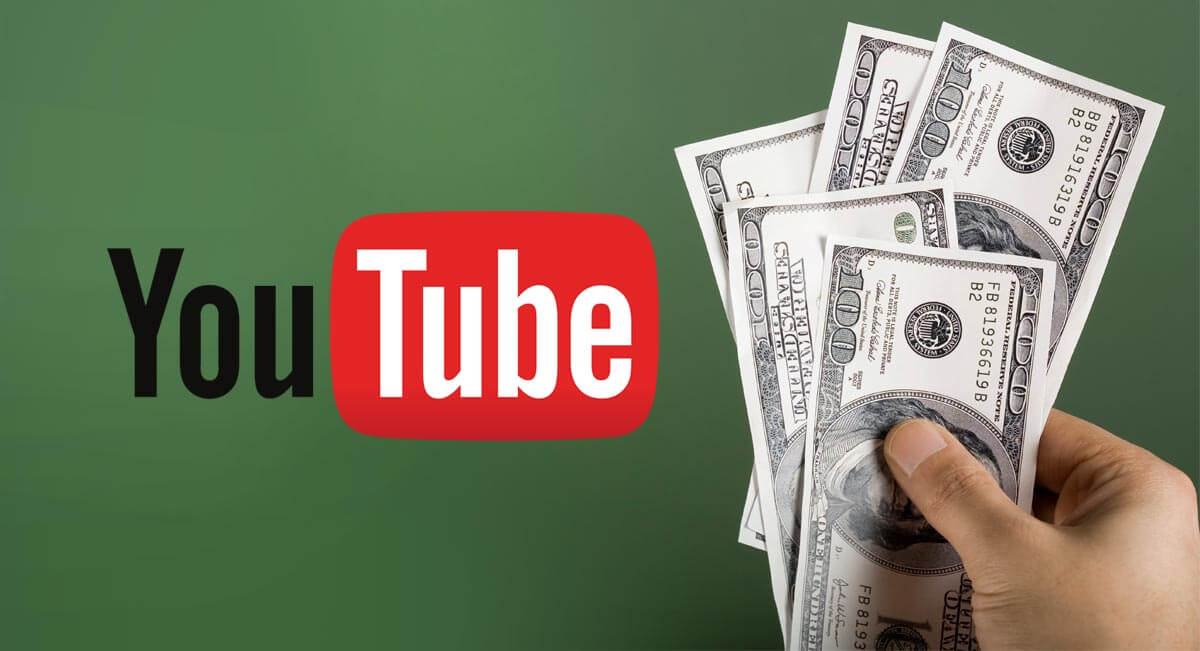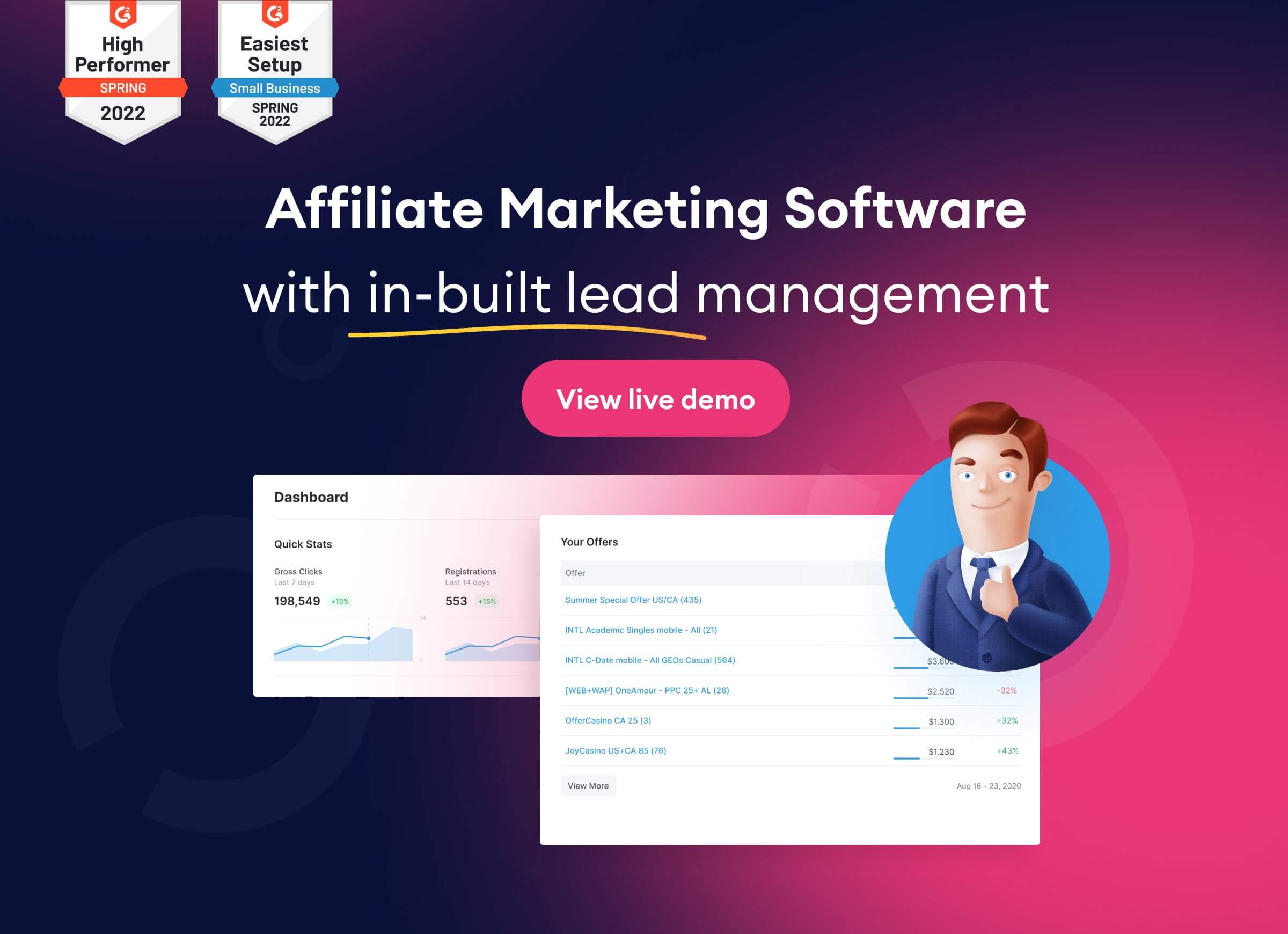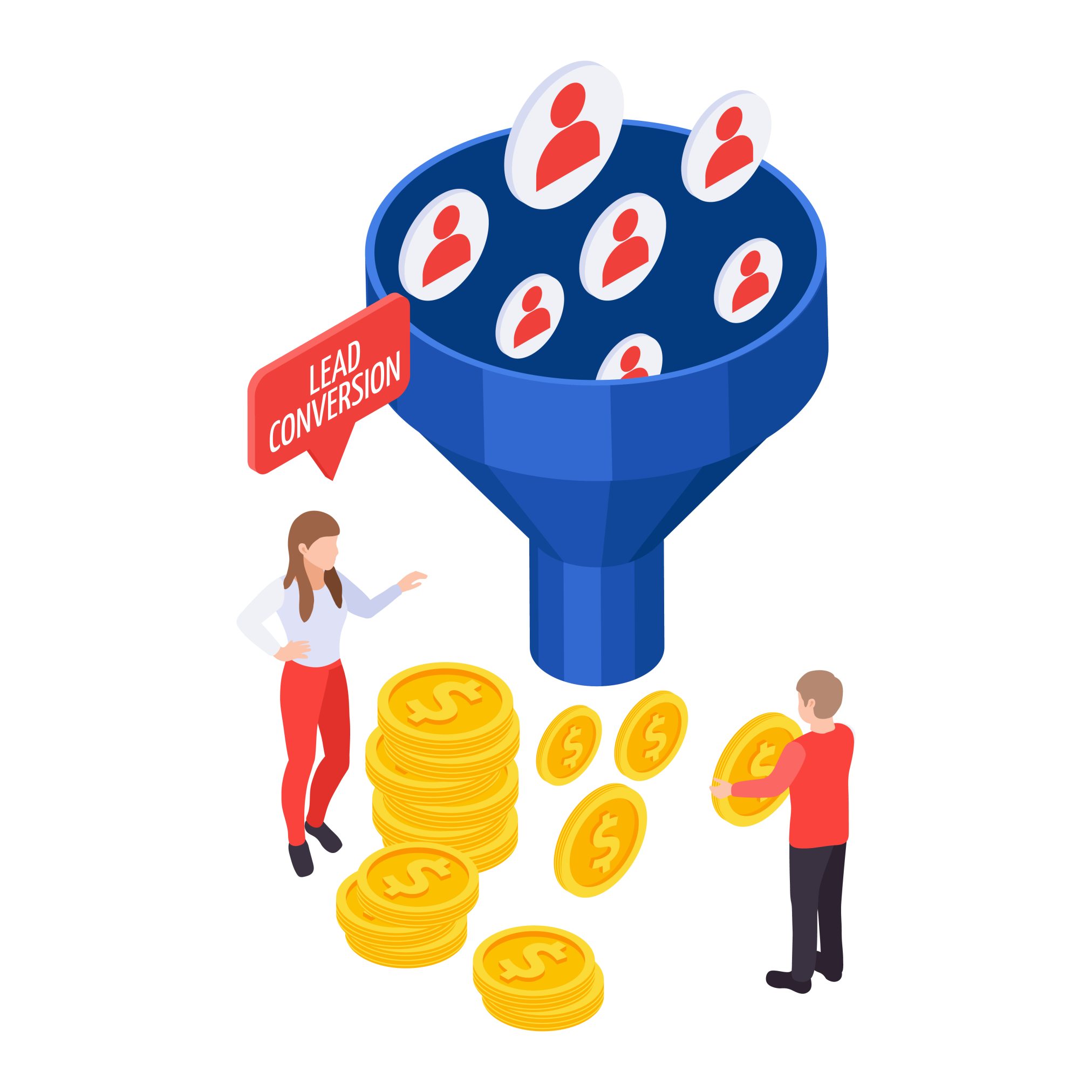Pay-per-click advertising offers an effective way to drive targeted traffic to your website and capture leads. By implementing the right PPC strategies, you can significantly boost your lead generation and see a strong return on your investment.
This article will explore 20 of the top PPC lead generation strategies to help you connect with more of your ideal customers. Whether you’re new to PPC or have been running campaigns for years, these proven tactics can help take your lead generation to the next level.
By the end, you’ll have actionable steps to implement in your PPC campaigns right away and start generating higher-quality leads. The key is focusing your budget and efforts on the strategies that will yield the biggest impact for your unique affiliate business.
With the right PPC approach, you have the potential to increase your lead volume and accelerate your growth dramatically.
Pay-Per-Click Advertising on Search Engines
To generate leads through pay-per-click (PPC) advertising, consider the following strategies:
Focus your PPC ads on search engines like Google Ads and Bing Ads. These platforms allow you to bid on keywords relevant to your business and display your ads at the top of search engine results pages.
- Conduct keyword research to determine high-volume, low-competition search terms in your industry. Bid on phrases that potential customers are likely to search for.
- Create compelling ad copy with your main keyword, strong call-to-action, and clear value proposition. Keep your message concise while highlighting the key benefits of your offering.
- Set a reasonable cost-per-click (CPC) bid for your target keywords based on your marketing budget and the current market rates for those terms. Monitor your campaign closely and adjust as needed to achieve optimal results within your budget.
- Drive traffic to a customized landing page on your website that matches the message and call-to-action of your ads. Include a lead capture form on the page to convert visitors into leads.
- Track key performance indicators like impressions, clicks, click-through rate, conversions, and cost per conversion to optimize your PPC campaign. Make changes to improve results and scale high-performing ads.
Remember, with regular optimization, PPC advertising can become a key lead generation channel.
Leverage Social Media Ads for PPC Lead Generation
To generate high-quality leads through paid advertising, leverage social media platforms. Social networks like Facebook, LinkedIn, and Twitter offer targeting options to reach your ideal customers.
You can create ads on Facebook and LinkedIn to appear in the feeds of specific audiences. Define your target market by location, demographics, interests, job titles, etc. Place eye-catching images and compelling ad copy to capture attention and drive clicks to your landing page or website.
On Twitter, promoted tweets and promoted accounts allow you to increase visibility and gain new followers. Promoted tweets appear at the top of search results and timelines, while promoted accounts are suggested as recommendations to users. Use hashtags, images, and links in your tweets to optimize engagement.
For the best results across networks, A/B tests different ad variations to determine what resonates most with your audience. Pay close attention to metrics like click-through rate, cost per click, and conversion rate to optimize your ad spend. With regular monitoring and tweaking, social media ads can become a powerhouse for PPC lead generation.
Social media advertising through platforms like Facebook, LinkedIn, and Twitter effectively generates leads through paid search. By targeting the right audiences, crafting engaging ads, and continuously optimizing based on metrics, you can boost your PPC lead generation.
Use Google Display Ads to Reach New Audiences

Reach New Potential Customers
Google Display Ads allow you to reach audiences beyond just searchers. These ads appear on websites, videos, and mobile apps across the Google Display Network. Display ads significantly expand your reach since people spend more time browsing content than searching. They help get your message in front of people who may not yet be actively looking for your product or service.
Target Based on Interests and Behaviors
With Google Display Ads, you can target audiences based on their interests, behaviors, and other characteristics. You can reach people interested in business topics, frequent travelers, homeowners, and more.
Targeting by interest and behavior helps ensure your ads are shown to audiences most likely to take action. You can also re-target people who have visited your website to keep your brand on mind.
Optimize for Conversions
The key to success with Google Display Ads is optimizing for conversions, not just impressions or clicks. While display ads do typically have lower click-through rates than search ads, they can drive high-quality traffic and conversions when optimized properly. Focus on relevant targeting, compelling ad creative, and landing pages tailored to your audience.
Measure the performance of your ads based on important metrics like cost-per-conversion and return on ad spend. Make changes to improve over time.
Complement Your Search Campaigns
Google Display Ads work very well to complement your search advertising efforts. They allow you to reach new audiences and stay in front of people who have already shown interest. Using search and display ads together results in a more well-rounded digital marketing strategy with the potential for higher returns.
Each channel reinforces the other, building familiarity and trust in your brand.
Run YouTube Ads to Generate Video Leads

Create Engaging Video Content
You need video content to generate leads with YouTube ads that will capture your target audience’s attention and interest.
Create videos that:
- Educate your viewers. Teach them about your product, service or industry. Instructional “how-to” videos are popular and build trust in your brand as an expert.
- Share case studies. Show how you solved a problem for a client. Case studies build credibility and help viewers see the value in your offering.
- Promote your latest content. Create a video summarizing your most recent blog post, ebook, or other content asset. This extends the reach of your content and gives viewers a quick overview of the information.
- Answer common questions. Make short videos responding to frequently asked questions about your business or industry. This helpful content will resonate with viewers and position you as a resource.
Optimize Your Video for YouTube
You need to optimize your video for the platform to get the most out of your YouTube ads. This includes:
- An attention-grabbing thumbnail. Use an exciting image that represents your video content. Include text that highlights the topic or purpose of the video.
- An engaging video title. The title should capture interest and encourage clicks. Include your target keyword for the video in the title.
- Video tags. Use tags to help viewers find your video in YouTube searches. Include your target keywords, synonyms, and related terms.
- Video description. The description should provide an overview of the video content, include your target keywords, and have a call-to-action telling viewers what you want them to do next, like visit your website or contact you.
- Closed captions. Add captions to make your video accessible and improve searchability on YouTube. The captions should match what is said in the video word-for-word.
- End screen and cards. Add an end screen with buttons linking to your other videos and channel. Use cards within the video to link to related content. This keeps viewers engaged with your channel.
Following these best practices will optimize your video content for YouTube and increase the effectiveness of your YouTube ads. The higher quality and more optimized your videos are, the lower your cost per conversion will be.
Advertise on Industry-Specific Websites and Blogs
Advertising on industry-specific websites and blogs is an effective way to generate targeted leads.
Focus on Relevant Sites
Seek out sites and blogs that your target customers frequent. For example, advertise on sites for accountants, bookkeepers, and small business owners if you offer accounting software. These individuals are already interested in your product or service so that they will be receptive to your ads.
Provide Useful Content
Rather than just promoting your product, provide content that offers value to readers. For example, you might write a blog post on “The Top 5 Features Every Accounting Software Should Have.” Readers will appreciate the helpful information and associate your brand with expertise in the field.
Include Calls-to-Action
Include prominent calls-to-action (CTAs) in your ads and content, such as “Download our free eBook” or “Sign up for a free trial today.” CTAs clearly allow readers to engage with your brand and potentially become leads.
Offer Incentives
Provide incentives for readers to click your ads and CTAs, such as free guides, webinars, or software trials. For example, “Download our ‘Accounting Software Buyer’s Guide’ to help choose the right solution for your business.” Incentives increase the chance of generating a high-quality lead.
Track and Optimize
Use analytics tools to see which sites, ads, and content generate the most leads. Focus your efforts on the highest-performing strategies. Make changes to continually improve your lead generation, such as testing different CTAs, content offers, ad copy, and placement. With regular optimization, advertising on industry websites and blogs can become one of your most effective lead-generation channels.
Sponsor Podcasts, Webinars, and Online Events

Sponsor Relevant Online Events
Sponsoring your industry’s podcasts, webinars, and other online events effectively generates high-quality leads. As a sponsor, you’ll often receive promotion and exposure to engaged audiences in exchange for a sponsorship fee. Look for events that match your target customers and company values.
When sponsoring an event:
- Ensure your brand and offers are prominently featured—request opportunities to speak about your products and services.
- Provide resources or promotional offers to share with attendees. For example, offer an exclusive discount or free trial for webinar registrants.
- Capture lead information from attendees who engage with your brand. Promote a contest or giveaway and collect emails, or offer a lead magnet like an ebook or toolkit in exchange for contact details.
- Engage with attendees during and after the event on social media. Answer questions, provide value, and build relationships. Mention the event sponsor in posts to increase visibility.
- Measure the impact to determine the ROI of your sponsorship. Track leads, sales, and new customers that resulted from the event. Review attendee feedback and engagement to guide future sponsorships.
Sponsoring online events is a multifaceted strategy that, when implemented thoughtfully, can yield high-quality leads and new business opportunities. Choosing relevant events, providing value to attendees, capturing lead information, building relationships, and measuring results are key to maximizing your sponsorship. With consistent engagement, sponsoring online events can become an ongoing source of new leads and customers.
Partner With Influencers to Promote Your Brand
Partnering with influencers in your industry effectively promotes your PPC agency to new potential clients. Influencers already have an established audience that trusts their recommendations. When they promote your services, their followers will be more inclined to click through and convert.
Identify Relevant Influencers
Search for influencers in your industry who frequently post about PPC, digital marketing, and lead generation. Look for those with an engaged following of business owners and marketing professionals. Check their follower count, engagement, and content to determine if their audience matches your target customers.
Reach Out and Build a Relationship
Once you’ve identified good candidates, reach out via email or social media to start a conversation. Express your genuine interest in their content and audience. Look for opportunities to provide value by sharing their posts, commenting, and engaging with their followers. Build rapport and trust before asking for a promotion.
Propose a Promotional Partnership
When the time is right, propose partnering for lead generation. Offer the influencer a special offer or discount they can share with their followers in exchange for a promotional post about your agency. Be willing to negotiate the specifics to create a win-win partnership.
Provide Resources and Follow Up
Make it easy for the influencer to promote your services by providing sample copy, images, and any other resources they need. Be available to answer any questions about the offer or your services. Thank the influencer when they share the promotion and follow up to inform them of the impact and results. This positive experience will make them more likely to partner with you again.
Partnering with influencers is a mutually beneficial strategy that can significantly boost your lead generation. Build genuine relationships, provide value, and make the promotion process simple for the influencer. Their recommendation and promotion to an engaged audience is a powerful way to gain new potential clients.
Pay for High-Ranking Positions on Aggregator Sites
Paying for high-ranking positions on aggregator sites effectively generates leads through pay-per-click (PPC) advertising.
Aggregator sites, like Yelp or HomeAdvisor, allow businesses to pay for prominent listing placement to increase visibility.
Target Relevant Aggregator Sites
Focus your efforts on industry-specific aggregator sites that your target customers actually use. For example, paying for placement on Yelp may be useful for restaurants but not for a B2B software company. Identify 2-3 major sites where your potential leads spend time.
Choose High-Visibility Placements
Look for placements at the top of search results pages, like sponsored or featured listings. These placements typically garner the most clicks from site visitors. Be willing to pay a premium for the increased exposure and lead opportunity.
Optimized Listing Content
Your listing content needs to motivate visitors to contact you. Include persuasive yet honest details about your products, services, experience, reviews, and credentials. Use keywords in your listing title, photos, and description to improve search visibility on the platform. Update your content regularly to keep it fresh.
Track and Optimize Your Results
Monitor your paid listings by analyzing metrics like impressions, clicks, and conversions. Look for opportunities to improve your click-through and conversion rates over time through A/B testing of different ad copy, photos, or calls-to-action. Make adjustments to underperforming listings to boost their effectiveness.
Paying for prominent placement on industry aggregator sites is an investment, but the potential for high-quality leads is worth the cost. With an optimized, targeted approach, PPC on aggregator sites can become a key part of your lead generation efforts.
Promote Deals and Offers Through Daily Deal Sites
Promoting your business through daily deal sites is an effective way to generate leads. Daily deal sites like Groupon and Living Social offer discounts on products and services promoted to their large subscriber bases.
Offer a Discount
Create an attractive offer, something like 50-90% off, to entice new customers. The deep discount will drive a high volume of leads and new customers. Make sure the offer is still profitable for your affiliate business.
Choose the Right Deal Site
Select a daily deal site that caters to your target audience and location. For example, if you have a restaurant, focus on sites like Groupon and Living Social with food and dining sections. Local sites may also be suitable for targeting customers in your area.
Provide a Great Experience
Give customers who take advantage of the daily deal offer a fantastic experience. Make a good first impression so they become repeat customers and refer others. Their reviews and word-of-mouth marketing will generate new leads even after the deal ends.
Upsell and Cross-Sell
Use the opportunity to upsell recent customers to more premium products or services. For example, if the deal was for a basic package, offer an upgrade to a more deluxe package. You can also cross-sell related products to increase the value of each sale.
Stay in Touch
Collect customer contact information from everyone who redeems the daily deal. Add them to your email marketing list and stay in touch with promotions, newsletters, and special offers to keep them engaged. Nurturing these new leads will maximize the benefit of running a daily deal campaign.
Daily deal sites provide access to many motivated leads and new customers. You can turn a one-time discount into a long-term business growth opportunity with the right strategy. Promoting offers through daily deal sites, providing a great customer experience, upselling and cross-selling, and staying in contact with new leads are all effective ways to boost your business.
Participate in Pay-Per-Click Affiliate Programs

Find Relevant Affiliate Programs
To generate leads through pay-per-click (PPC) affiliate programs, you first need to find relevant programs to your business and target audience. Search for programs in your industry that offer products or services that complement your own. Some options to consider include:
- Merchant affiliate programs: Promote another company’s products or services on your website for a percentage of each sale. For example, an online retailer could join an affiliate program to promote a product supplier’s goods.
- Aggregator affiliate programs: Work with an aggregator like Commission Junction or Rakuten that provides access to many merchant programs. This allows you to choose from a wide range of products to promote without joining each program.
- Influencer affiliate programs: If you have a strong social media following or online influence, some brands offer higher commission rates and more customized promotions for influencers.
Promote Affiliate Links
Once you’ve joined some relevant programs, start actively promoting your affiliate links to generate leads and sales. Some effective ways to do this include:
- Content marketing: Feature affiliate products and links in blog posts, videos, webinars, and other content on your website. This helps to raise awareness and interest in the products you’re promoting.
- Social media marketing: Promote affiliate offers and share links on social platforms like Facebook, Instagram, and Twitter, where you have an established following. Engage with your followers by posting photos, running contests, and offering discounts and coupons.
- Pay-per-click ads: Use PPC ads to drive traffic to your affiliate links. Bid on keywords related to the products you’re promoting to capture the interest of potential customers searching online. PPC provides an easy way to scale your affiliate marketing efforts.
- Email marketing: Include affiliate links and product information in emails to your subscriber list. Dedicated email campaigns promoting special offers and discounts for your affiliate partners can be particularly effective for lead generation.
Looking to Super Charge Your Affiliate Business?
Scaleo is an advanced affiliate marketing software designed to empower businesses by seamlessly integrating a powerful lead generation module. This state-of-the-art platform offers a comprehensive suite of tools to effectively manage, track, and optimize your affiliate programs.
With its built-in lead generation feature, Scaleo goes beyond standard affiliate marketing capabilities, helping you capture and convert prospects into loyal customers. The lead generation module offers precise targeting and advanced analytics, enabling you to nurture leads at every step of the customer journey.
Simplify and supercharge your affiliate marketing strategies with Scaleo, your all-in-one solution for achieving measurable growth and success.

Build Email Lists Through Co-Registration Offers
Building an email list is one of the most effective ways to generate leads through pay-per-click (PPC) advertising. One strategy to grow your list is offering a co-registration deal or opt-in incentive. This means providing value to website visitors in exchange for their email address.
Offer a Coupon or Discount
A popular co-registration offer is a coupon or discount on your product or service. For example, you can offer “20% off your first purchase when you join our mailing list.” The incentive of saving money appeals to many website visitors and will convince them to provide their email address.
Provide Useful Content or Tools
You can also build your email list by offering useful content or tools in exchange for an email signup. For example, if you sell business consulting services, you might offer a free guide on “10 Ways to Increase Employee Productivity.” Or, if you have an e-commerce store, you can provide a product comparison chart or buying guide. These types of co-registration offers work well because they demonstrate your expertise and the value you provide to customers.
Hold a Contest or Giveaway
Running a contest, sweepstakes, or product giveaway is an exciting way to capture email addresses. For example, you can offer website visitors a chance to win a prize when they join your mailing list. The opportunity to win something for free is an enticing incentive for people to provide their email addresses. Just be sure to follow all laws regarding contests and sweepstakes.
Using co-registration offers effectively builds your email list and generates more leads from your PPC campaigns. Providing something of value, whether it’s a coupon, content or contest, gives website visitors a good reason to share their email address with your business. With a larger list, you’ll be able to stay in touch with more potential customers and boost your lead generation.
Advertise in Online Directories and Review Sites
Advertise on Online Directories and Review Sites
To generate PPC leads, consider advertising your business on online directories and review sites. These sites typically rank high in search engines for local searches and industry-related terms. When people search for businesses like yours, your ad or listing will appear at the top of the results.
Promote your business by claiming your free listing on sites like Yelp, Google My Business, Bing Places for Business, and Facebook. Complete your business profile with photos, service descriptions, contact information, and a link to your website. Search engines index these listings and help boost your visibility and credibility.
For paid advertising options, many directories like Yelp, HomeAdvisor, and Thumbtack allow you to sponsor your listing to appear at the top of search results or in prominent locations on the site. You only pay when someone clicks your ad or contacts you through the site. The cost per lead varies but can be an affordable way to generate targeted leads.
Review sites are also a good place to build social proof for your business. Encourage happy customers to leave positive reviews about their experience with your company. Reviews and ratings significantly influence people’s purchasing decisions and can increase your lead conversion rates.
Take the time to explore different online directories and review sites to determine which ones your target customers frequent. Focus your efforts on the sites that will yield the highest quality leads for your business. With an optimized free listing and strategic paid advertising, promoting on these sites is an effective way to boost your visibility and generate new leads.

To generate more leads through social media, consider sponsoring popular industry hashtags. This strategy allows you to promote your PPC ads to people already engaged with content related to your business.
Target hashtags that are frequently used in your industry like #marketing, #seo or #tech. When people click on a sponsored hashtag, they will see your promoted social media post at the top of the search results. The post should include an eye-catching image, a brief message about your service or product and a call-to-action link to your website.
Keep your sponsored posts concise but compelling. Explain how you can solve a common problem for your target customers or highlight a valuable resource you offer. For the best results, test different hashtags, images and messages to determine what resonates most with your audience. You can then scale up the top-performing ads to reach more potential leads.
Sponsoring industry hashtags is an affordable way to raise brand awareness and drive traffic to your site. According to studies, social media users are more likely to click on sponsored content when it’s relevant to their interests. With the right approach, this PPC strategy can generate many high-quality leads for your business.
Continuously monitor the performance of your sponsored hashtags and make adjustments to improve click-through and conversion rates over time. Keep your messaging consistent across social platforms for the best results. With regular optimization, sponsoring targeted hashtags is an effective method for boosting your PPC lead generation.
Run Contests and Giveaways to Collect Leads

Run Contests and Giveaways
Running contests and giveaways is an effective way to generate new leads for your business. You can capture contact information from interested prospects by offering an enticing prize related to your product or service.
To run a successful contest, first determine what you will offer as a prize. It should be something appealing to your target audience that also promotes your brand, such as a free product trial or service consultation. Next, establish the mechanics of how people can enter and win. You may ask for basic details like name and email address to build your lead list. Consider also asking an engaging question about your product to start a conversation.
Promote your contest on social media, your email newsletter, and website. Explain how the prize relates to your business and the value to the winner. Clearly state the start and end dates, as well as the terms and conditions for entry. Make the entry process as simple as possible by using a dedicated landing page on your website or an online form.
Review all entries and select a winner at random to keep the process fair. Announce the winner on the platforms where you promoted the contest and contact them directly. Follow up with the other entrants with a message thanking them for their interest in your brand and keep the conversation going to turn more leads into customers.
Contests and giveaways are an interactive way to raise brand awareness and connect with your target audience.
With an enticing prize and strategic promotion, you can generate many new leads to build your business. Be sure to capture contact details for all entrants and follow up promptly to have the best chance of converting leads into sales.
Other Factors to Consider
To effectively generate leads through pay-per-click (PPC) advertising, consider the following strategies:
Optimize Your Landing Page
Your PPC ads should direct visitors to a customized landing page on your website tailored to your campaign’s goals. Ensure your landing page clearly states the offer or product featured in your ad. Include a strong call-to-action like a contact form to capture leads.
Choose Relevant Keywords
Conduct keyword research to determine terms your target audience uses to search for solutions like yours. Select keywords that match your ads and landing pages. Use keyword tools to find high-volume, low-competition key phrases. Include synonyms and related terms in your ads and landing pages.
Set a Realistic Budget
Determine how much you can afford to spend on your PPC campaign to achieve your lead generation goals. Start with a small daily budget and make adjustments based on performance. As your budget grows, expand into new ad groups and campaigns.
Focus on Quality over Quantity
Rather than maximizing lead volume, focus on attracting high-quality leads that convert into sales. Optimize your campaign to target the most relevant audience segments. Include questions or lead scoring in your contact forms to qualify leads. Review and follow up with leads promptly.
Track and Optimize Performance
Monitor your PPC campaign’s key performance indicators like impressions, clicks, cost-per-click, and conversion rate. Make adjustments to improve results, such as editing underperforming ads or keywords, or increasing bids on high-performing terms. Continually optimize your campaign to boost lead generation over time.
Following these best practices will help you launch an effective PPC lead generation campaign. With regular optimization, you can achieve a consistent flow of high-quality leads to support your business growth.
Conclusion
As you have seen, you can implement many effective PPC strategies to generate more leads for your business. Whether you optimize your landing pages, improve your ad copy, target high-intent keywords, or take advantage of retargeting, the options are plentiful. The key is to start testing different strategies to find what works for your unique business and audience.
Do not get overwhelmed by the possibilities; instead, pick a few to focus on, measure the results, and scale up what proves most effective. Consistent optimization of your PPC campaigns will boost your lead generation and gain valuable customers.
The only thing left to do is get started.

Last Updated on January 25, 2024






